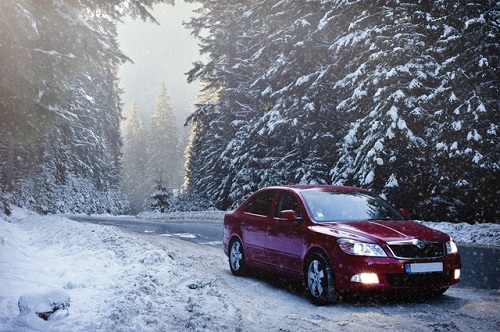 People over the age of 70 have the second highest accident rate per kilometer when compared to any other age group. The reaction times of a 65-year-old have been found to be 22 times slower than a 30-year-old. This shows that safety on the roads for a senior can be a huge problem. Add the effects of winter’s wet and icy weather conditions and you may start thinking that it’s time to give up driving altogether. However, there are some precautions you can take to improve safety for yourself and other road users.
People over the age of 70 have the second highest accident rate per kilometer when compared to any other age group. The reaction times of a 65-year-old have been found to be 22 times slower than a 30-year-old. This shows that safety on the roads for a senior can be a huge problem. Add the effects of winter’s wet and icy weather conditions and you may start thinking that it’s time to give up driving altogether. However, there are some precautions you can take to improve safety for yourself and other road users.
Preparing Your Car
Regardless of your age, if your car isn’t up to scratch for the winter then you can easily run into problems. Ice and condensation on windows are two of the biggest problems that your car will battle with in winter, so be prepared for them. Check your engine’s antifreeze/coolant ratio: you want about 60% coolant to 40% water in cold weather. Make sure your windscreen wipers are in good condition and have antifreeze in your washer fluid. It’s also a good idea to switch your tires to specialized winter ones that have a tread designed for rain, snow and ice, as well as normal dry conditions. There are all different types available, from economical ones to top of the range, so it’s worth researching suitable winter tire reviews that are relevant to your car and needs.
Avoid Driving Where Possible
Giving up driving can mean you lose a bit part of your identity, especially if you’ve driven all your life, so it can be a difficult decision to make. However, there’s no reason to give up if you can still drive safely. Check the weather forecast beforehand and avoid driving in heavy rain, snow or icy weather so that you’re not out in conditions that increase the risk of an accident. If you do have to go out, always let someone know where you’re going and at what time so that they know when you should be back home.
Conditions That Can Make Driving Hazardous
As you age it’s common for eyesight and hearing to deteriorate, which can cause major problems if you’re driving. In fact, the American Academy of Family Physicians reports that around 75% of people who are considered legally blind are seniors with glaucoma. Obviously, poor sight can be disastrous, so have regular sight tests and make sure you’re always wearing your glasses for driving. It may be worth keeping a pair in your car so that you can never forget to take them with you. Poor hearing can make it difficult to hear emergency services sirens or car horns that can offer a vital warning. Mobility may also decline, making it difficult to turn to check blind spots and maneuver the car.
In some states you may be required to submit medical information and have a sight test once you reach a certain age to show that you can still safely drive. Ultimately, it’s up to you as an individual to keep yourself and other road users safe. If you notice that your driving isn’t as good as it used to be, then it may be time to switch to public transport, particularly in harsh weather.


Comments